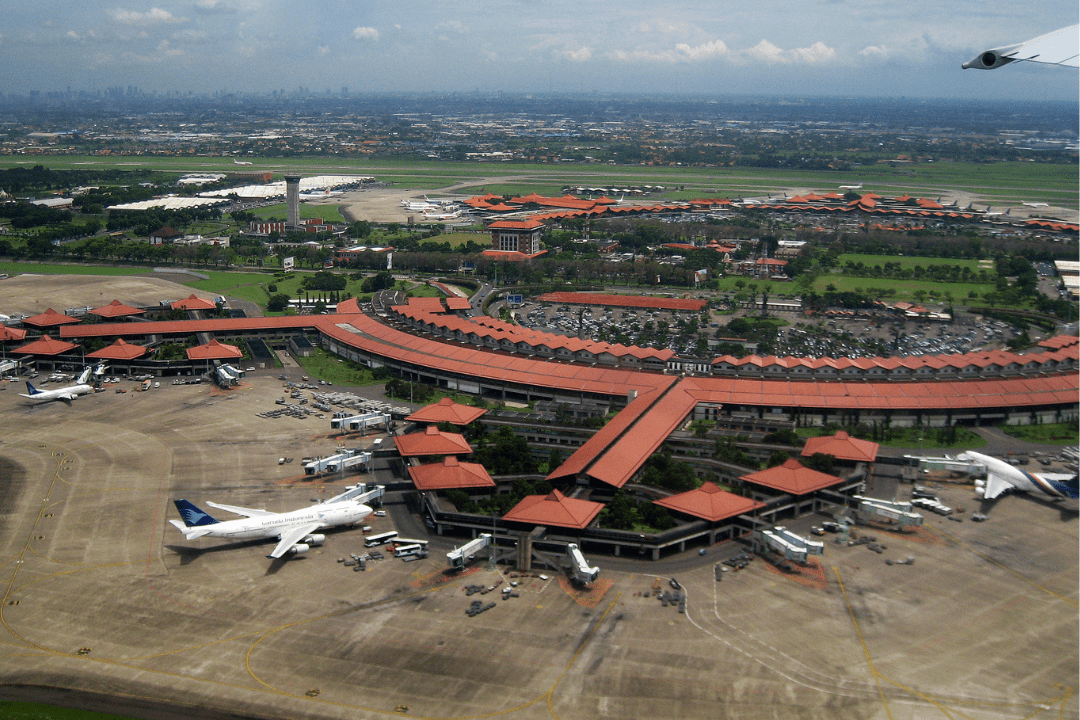Aviation Consulting
ATO/FTO/ CCTO set-up
ATO/FTO/ CCTO set-up
Total Quality Management
Total Quality Management
Information Technology (Asset Refresh)
Information Technology (Asset Refresh)
Digital Learning
Digital Learning
Aerodrome Licensing
Aerodrome Licensing
Ground Handling Certification
Ground Handling Certification
ACI Airport Carbon Accreditation
ACI Airport Carbon Accreditation
Ground Services Personnel Work Permit
Ground Services Personnel Work Permit
BASH/Wildlife Hazard Management
BASH/Wildlife Hazard Management
Training Needs Identification/ Analysis (TNIs/TNAs)
Training Needs Identification/ Analysis (TNIs/TNAs)
Air Operator Certificate
Air Operator Certificate
Airport Service Quality (ASQ)
Airport Service Quality (ASQ)
LEED Certification
LEED Certification
ISO Certifications
ISO Certifications
Heliport Licensing
Heliport Licensing
Sustainability Report (GRI Standard)
Sustainability Report (GRI Standard)
Airport Operations Control Centre
Airport Operations Control Centre
ATO/FTO/ CCTO set-up
Flight Training Organization: With our deep knowledge and expertise in the aviation industry, we can guide you through the complex process of establishing an FTO from start to finish.
Our team of aviation experts will work closely with you to understand your vision and objectives, conducting a thorough analysis of regulatory requirements and industry standards. We assist in developing a comprehensive business plan, including financial projections, infrastructure requirements, and resource allocation. Our expertise extends to curriculum development, ensuring that your training programs are in line with industry best practices and regulatory guidelines.


Aerodrome Licensing
Aerodrome licensing refers to the process by which an airport or aerodrome obtains legal authorization to operate. Licensing is a crucial aspect of aviation safety and regulatory compliance, ensuring that aerodromes meet specific standards and requirements set by the civil aviation authority or relevant regulatory bodies.
GACAR Part 139 Certification programme has been promulgated in accordance with Article 33 of the Civil Aviation Law of the Kingdom of Saudi Arabia. According to the law, all Civil Aerodromes and airfields should be constructed, used, or invested in, in the Kingdom of Saudi Arabia (KSA) after obtaining the approval of the President.
Ground Services Personnel Work Permit
GACAR Part 68 is a regulatory framework related to ground-handling operations in Saudi Arabia. The regulations cover the issuance of work permits for all persons working for a Ground Services Provider (GSP). It sets out regulations with an aim to ensure safe and efficient ground-handling operations, with the purpose of ensuring aviation safety and training.
Compliance with GACAR Part 68 is crucial for both employers and employees in the aviation industry. Employers are responsible for ensuring that their ground services personnel have valid work permits and meet all necessary qualifications.


Airport Service Quality (ASQ)
Airport Service Quality (ASQ) is a prestigious program that serves as the global leader in benchmarking customer satisfaction with airport passenger services. Its primary objective is to assist airports in enhancing their performance and providing competitive services to passengers by offering objective measurements.
ASQ understands the importance of airports assessing their performance in passenger services and ensuring a positive passenger experience. To achieve this, ASQ provides a comprehensive range of products and surveys. These include the renowned ASQ Departure Survey, the Arrivals Survey, the Employee Survey for Customer Experience, the Commercial Survey, and more.
Heliport Licensing
Heliport licensing refers to the process by which a heliport, a designated area for helicopter takeoffs and landings, obtains legal authorization to operate. Licensing ensures that heliports meet specific safety and operational standards set by regulatory authorities
GACAR Part 138 plays a crucial role in governing the licensing and operations of heliports in Saudi Arabia’s airports. This regulation sets forth the requirements, standards, and procedures for the establishment, certification, and ongoing management of heliports within the country.


Total Quality Management
Total Quality Management (TQM) encompasses a management philosophy that aims for long-term success by prioritizing customer satisfaction. In the context of TQM, every member of an organization actively engages in enhancing processes, services, and work culture to meet or surpass customer expectations. In the realm of modern airports, the significance of delivering a positive customer experience has been widely recognized.
As a consulting firm, we are dedicated to helping organizations achieve excellence and long-term success through the effective implementation of TQM principles. Our consulting services are designed to support businesses in various ways:
Ground Handling Certification
Ground handling certification refers to the process by which ground handling service providers obtain official recognition and authorization from regulatory authorities or industry organizations. This certification ensures that ground handling operations at airports meet specific safety, security, and operational standards.
GACAR 151 Certification programme is an internationally recognized and accepted certification system designed by the Saudi Arabian General Authority of Civil Aviation Authority (GACA) to assess a Ground Service Provider’s operational management and control systems.


BASH/Wildlife Hazard Management
Bird Aircraft Strike Hazard (BASH) Management refers to the proactive and strategic approach taken by airports and aviation authorities to minimize the risk of bird strikes on aircraft. These strikes can pose significant safety hazards and potential damage to aircraft, making BASH management crucial in ensuring the safety of both passengers and crew.
We offer comprehensive services to assist airports, airlines, and aviation authorities in effectively managing the risks associated with bird strikes. Our expertise and tailored approach enable us to provide valuable assistance in the following ways:
LEED Certification
LEED, which stands for Leadership in Energy and Environmental Design, is a highly renowned and extensively utilized green building rating system worldwide. It offers a comprehensive framework for certifying a wide range of building types as sustainable, healthy, and energy efficient. By adhering to LEED standards, buildings can achieve significant environmental, social, and governance benefits while also saving costs.
As a provider of LEED consulting services, our firm is well-equipped to guide organizations through the complex process of achieving LEED certification for their building projects. We offer a comprehensive range of services to support clients at every stage of the certification proces


Sustainability Report (GRI Standard)
Sustainability reports are comprehensive documents that provide an overview of an organization’s environmental, social, and governance (ESG) performance. These reports aim to transparently communicate the organization’s sustainability practices, goals, and progress to stakeholders, including investors, customers, employees, and the wider community. Sustainability reports typically cover a range of topics, such as energy and water usage, greenhouse gas emissions, waste management, social impact, employee well-being, diversity and inclusion, and ethical business practices. By publishing sustainability reports, organizations showcase their commitment to responsible and sustainable business practices, promoting transparency and accountability.
Information Technology (Asset Refresh)
Asset refresh refers to the process of updating or replacing existing assets within an organization’s infrastructure or technology environment. It involves assessing the current state of assets, identifying outdated or underperforming components, and implementing a plan to refresh them with newer, more efficient, and technologically advanced alternatives. Asset refresh initiatives are essential to ensure optimal performance, security, and reliability of systems, as well as to leverage the latest advancements in technology. By regularly refreshing assets, organizations can enhance productivity, reduce maintenance costs, mitigate risks, and stay competitive in an ever-evolving business landscape.


ACI Airport Carbon Accreditation
The ACI Airport Carbon Accreditation program is a globally recognized and industry-endorsed initiative that assesses and recognizes airports’ efforts in managing and reducing their carbon emissions. It provides a framework for airports to measure, manage, and mitigate their environmental impact, particularly in terms of carbon dioxide (CO2) emissions. The program consists of four levels of accreditation: Mapping, Reduction, Optimization, and Neutrality. Each level represents a higher degree of carbon management and reduction.
Training Needs Identification /Analysis (TNIs/TNAs)
Through Training needs assessment, we meticulously determine whether a training need exists and, if so, precisely identify the specific training required to bridge the gap. This assessment allows us to accurately gauge the current situation in terms of knowledge, skills, and attitudes, and compare it to the desired state. By identifying any discrepancies or shortcomings, we can pinpoint the specific areas that require training interventions.
Training plays a vital role in reducing or even eliminating the identified gap by providing participants with the necessary knowledge and skills.


ISO Certifications
ISO certification refers to the process of obtaining certification from the International Organization for Standardization (ISO) for adhering to specific standards related to quality, environmental management, information security, and various other areas. With ISO certification, organizations can enhance their credibility, improve customer confidence, and gain a competitive edge in the market. It signifies a dedication to maintaining high standards, continual improvement, and a focus on meeting customer needs and expectations.
There are several specific ISO certifications that organizations can obtain, depending on their specific needs and areas of focus. Here are a few examples:
Airport Operations Control Centre (AOCC)
The Airport Operation Control Center (AOCC) serves as the central hub within an airport where both internal and external partners collaborate to comprehensively manage all aspects of airport operations. This vital centre collects and processes airport data, providing real-time monitoring and a comprehensive overview of the airport’s operations.
By gathering and analyzing data from various sources, the AOCC enables all relevant parties to make informed decisions based on up-to-date information.


Digital Learning
E-learning, Augmented Reality (AR), and Virtual Reality (VR) are prime examples of how digital transformation has revolutionized the field of education and training. These technologies have disrupted traditional learning methods, enabling immersive and interactive experiences that enhance engagement, knowledge retention, and skill development.
Air Operator Certificate
An Air Operator Certificate (AOC) is an essential document issued by the civil aviation authority of a country, granting an airline or operator the legal authority to conduct commercial air transport operations. It signifies that the operator has met the necessary regulatory requirements related to safety, operational procedures, maintenance practices, and personnel qualifications. Obtaining an AOC involves a thorough evaluation of the operator’s aircraft, infrastructure, operations manuals, training programs, and safety management systems.
